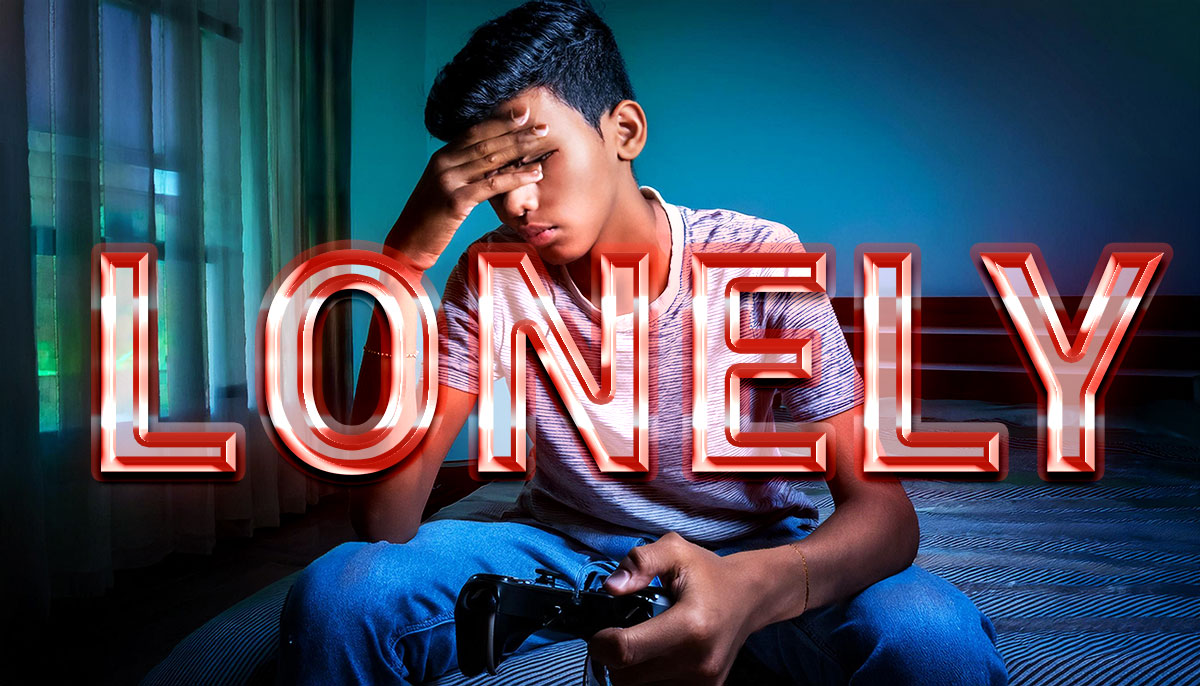
Male Loneliness Epidemic: Why Are Men So Lonely?
The World Health Organization has declared loneliness to be a priority public health problem, while the US Surgeon General has compared the impact of social isolation on a person’s health to smoking 15 cigarettes a day. And a global BBC Loneliness Experiment found that male loneliness is a particular problem.
At Game Quitters, we’ve seen firsthand how gaming and other online entertainment can increase loneliness among young men. In this article, we explore the so-called ‘male loneliness epidemic’ and look at how technology can create an illusion of socializing while perpetuating the cycle of loneliness.
We’ll answer questions such as:
- Why do so many men feel lonely today?
- Are the majority of men lonely?
- Why are Gen Z men so lonely?
- What causes loneliness in men?
What is the truth about male loneliness?
Is there a loneliness epidemic in men or is it simply a phrase coined by the media? Let’s look at some statistics to uncover the scale of the problem.
Men’s friendship groups are shrinking
Research from the Survey Center on American Life shows that men have far fewer friends than 30 years ago 1 1. https://www.americansurveycenter.org/why-mens-social-circles-are-shrinking/ × . In 1990, 40% of men said they had 10 or more close friends, compared to only 15% in 2021. And 3% of men reported having no close friends in 1990, but by 2021 this had risen to 15%. Women also experienced a decline in friendships over the same period, but not to the same extent.
Gen Z lacks understanding and social support
Equimundo, the Center for Masculinities and Social Justice, published a 2023 report about the ‘State of American Men’ 2 2. https://www.equimundo.org/wp-content/uploads/2023/05/STATE-OF-AMERICAN-MEN-2023.pdf × . It found that 65% of men aged 18 to 23 years old (Gen Z) said “no one really knows me well” and this age group were least optimistic about their future and had the lowest levels of social support.
Men don’t want to admit they’re lonely
There’s a perceived stigma attached to loneliness. A UK report from the Jo Cox Commission on Loneliness found that more than one in 10 men say they feel lonely but wouldn’t admit it to anyone else 3 3. https://www.ageuk.org.uk/globalassets/age-uk/documents/reports-and-publications/reports-and-briefings/active-communities/rb_dec17_jocox_commission_finalreport.pdf × . This is probably because they worry about being judged and don’t want to seem like a burden.
Individualistic cultures make men vulnerable to loneliness
The BBC Loneliness Experiment, which surveyed more than 46,000 people aged 16+ worldwide, found that young men living in individualistic cultures (such as the US, UK, Western Europe, and Australia) were more vulnerable to frequent loneliness, and the loneliness they experienced was longer lasting and more intense.
Men more likely than women to be single and lonely
A 2022 Pew Research Center survey revealed that 63% of men under the age of 30 were single—nearly double the rate of the women questioned in the survey 4 4. https://www.pewresearch.org/short-reads/2023/02/08/for-valentines-day-5-facts-about-single-americans/ × . The Equimundo report found that one in five men don’t want a relationship or are unable to find sexual partners. While the BBC Loneliness Experiment identified that marriage or cohabitation protects against loneliness.
The three types of loneliness
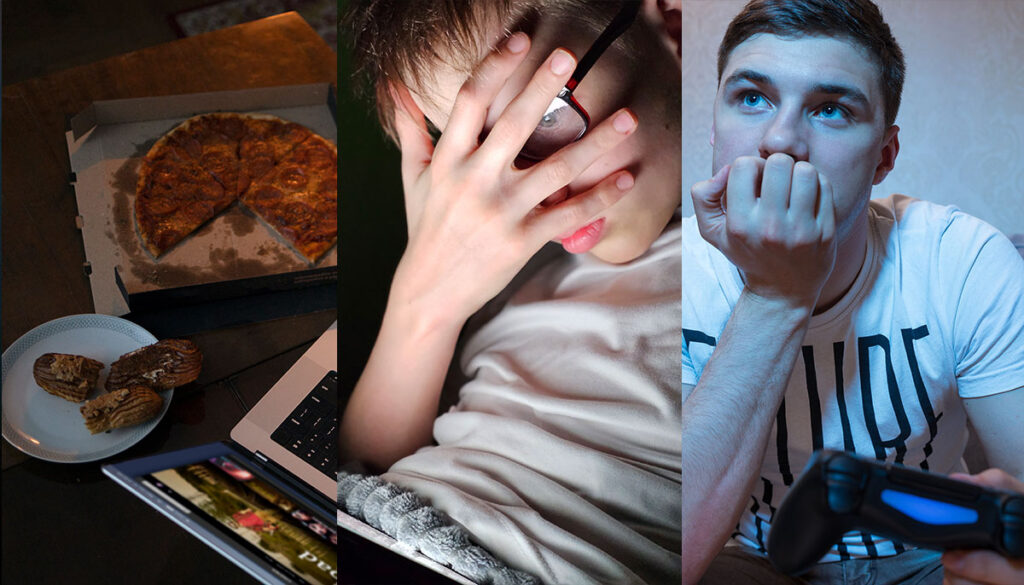
Loneliness can be categorized into three different types that can impact men and women, but are more likely to affect men given the statistics above:
- Situational loneliness: This type of loneliness can occur when someone’s environment or personal circumstances change. Factors that may trigger situational loneliness include unpleasant experiences, interpersonal conflicts, accidents, disasters, relocation, or separation from friends and family.
- Developmental loneliness: Children, teens, and young adults may struggle to connect with others if they feel their physical, social, and/or academic development is lagging behind their peers. Factors that can make someone more susceptible to this type of loneliness include developmental delays, physical disabilities, living in poverty, and psychological issues.
- Internal loneliness: Someone can feel lonely even when surrounded by friends and family, it’s all down to their perception. Internal loneliness is more likely to affect people who suffer from low self-esteem, feelings of worthlessness or inadequacy, and those who lack the resilience to cope with difficult situations.
What are the signs of male loneliness?
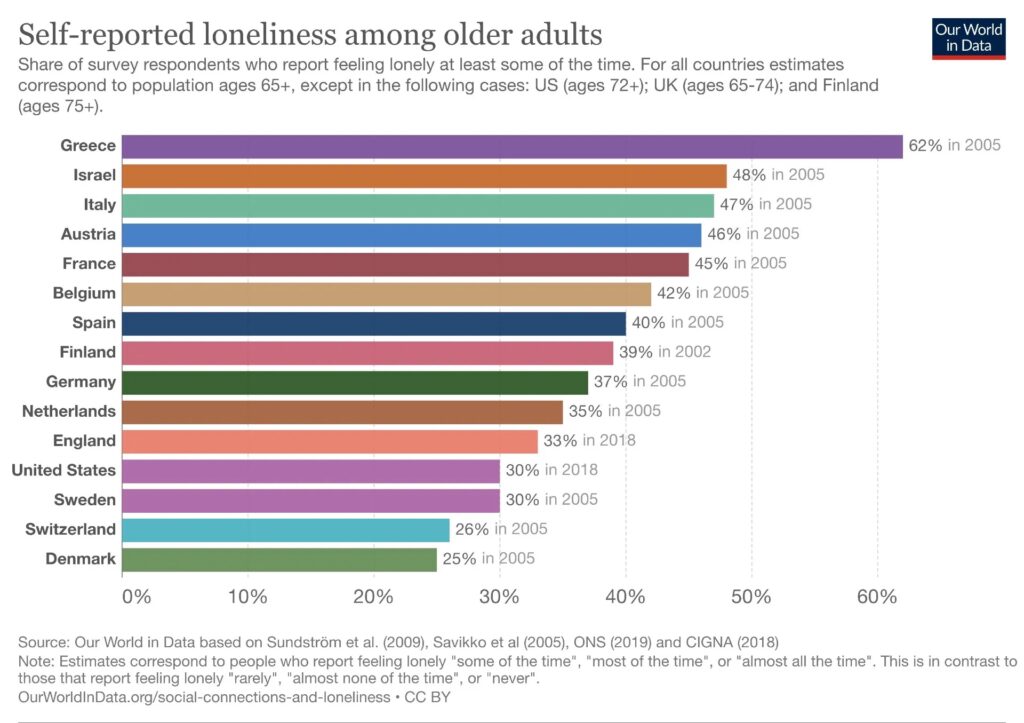
When looking out for signs of male loneliness it’s important to understand the difference between social isolation and loneliness. Some men prefer their own company and spend a lot of time alone. They may have little or no contact with other people but they’re not lonely. Whereas other men may be surrounded by other people but still feel alone, as described above.
So, how can you tell if a guy is lonely rather than socially isolated through choice? Loneliness can affect different people in different ways; there isn’t a definitive list of signs to look out for. In our experience, the following behaviors may be a cause for concern, especially if a person is displaying more than one of them:
- Avoiding social situations – Feeling like they don’t belong when they’re around other people.
- No close friends – Struggling to form meaningful relationships.
- Repressing feelings – Having difficulty opening up to others through fear of rejection.
- Lack of connection – If they do try to open up, they feel unheard or misunderstood.
- Low self-worth – Consumed by self-doubt and low self-esteem.
- Sleeping problems – Suffering from insomnia, disrupted sleep, or sleeping too much and feeling permanently exhausted as a result.
- Social media overuse – Constantly checking social media feeds for updates and getting FOMO when seeing other people’s lives.
- Binge-watching – Continuously viewing online content, which reduces the likelihood of socializing in person and makes them feel more isolated.
- Excessive gaming – Over-reliance on playing video games to escape from negative feelings.
Risk factors associated with loneliness
According to the UK Mental Health Foundation, there are certain risk factors that can make it more likely for a person to experience loneliness 5 5. https://www.mentalhealth.org.uk/our-work/research/loneliness-and-mental-health-report-uk × . These include:
- Age – Young people aged 16 to 24 years old (Gen Z) are more likely to be lonely.
- Relationship status – Single people and those who are widowed are more susceptible to loneliness.
- Physical health – Having a long-term health condition or disability may be a contributing factor.
- Employment status – Being unemployed, retired or a carer puts someone at greater risk.
- Housing situation – Living alone and/or in rented accommodation are known risk factors.
- Ethnicity – Being from an ethnic minority community.
- Sexual orientation – People who identify as LGBTQIA+ are more likely to be lonely.
Why loneliness is a problem
Humans are social animals, and no matter how extroverted or introverted an individual may be, everyone needs social interactions. From an evolutionary perspective, being a part of a community and having friends meant increased chances for survival. You might think that in today’s society we no longer need to gather in groups or worry about surviving, but in reality little has changed. It’s an illusion to think that we can live in isolation. We all need parents or carers to help us grow, develop, and learn so we can lead happy and independent lives as adults. And we need friends and family to turn to for support and guidance during difficult times.
In recent years, more people than ever across the world experienced loneliness as a result of the COVID-19 pandemic. The combination of lockdowns, social distancing, and working from home left many people feeling isolated and lonely. Even those who like their own company developed bad habits during all that time spent alone. And several years on, some people are still dealing with the negative impacts, especially men.
The potential consequences of loneliness
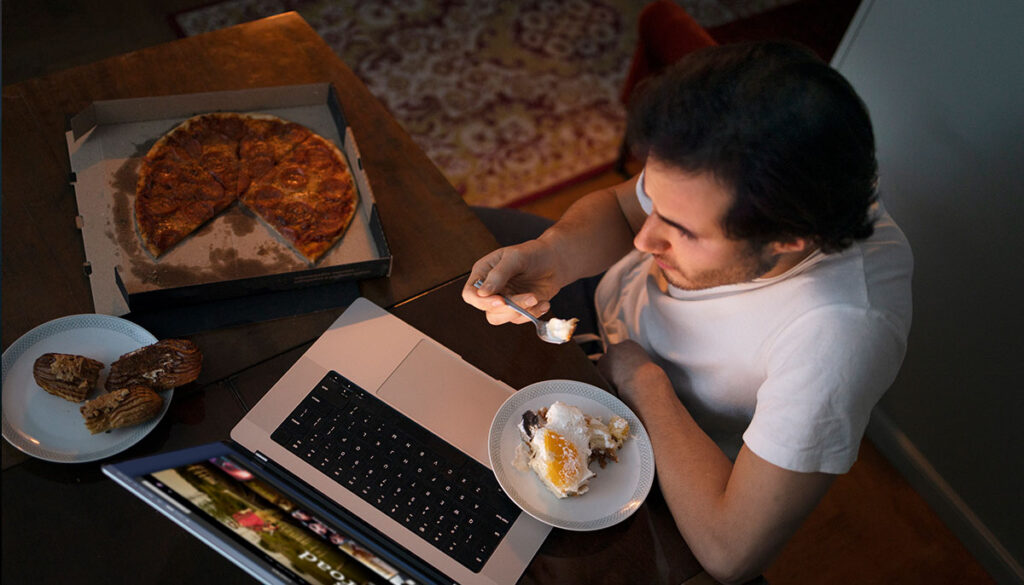
Loneliness has wide-ranging repercussions. Let’s look at what happens when a man feels lonely and some of the issues that can make things worse, like dating apps, social media, and playing video games.
Physical health issues
Lonely people are more at risk of certain physical health problems like obesity, heart disease, high blood pressure, and a weaker immune system. Research shows that married men are more likely than single or cohabiting men to use healthcare services. This is probably because dealing with medical issues alone can be challenging, so men put off seeking help without anyone there to express concern, urge them to get treatment, or be there to support their recovery or ongoing illness.
Mental health problems
Loneliness can also make an individual more susceptible to mental health problems, particularly depression and anxiety. People who are lonely are more likely to suffer from depression, and depressed people are at greater risk of becoming lonely. Loneliness is associated with an increased risk of death in men so it’s concerning that 40% of all men surveyed in the Equimundo report about the ‘State of American Men’ had symptoms of depression and 44% had thoughts of suicide in the two weeks before the survey. Gen Z males had the highest levels of depressive symptoms and suicidal ideation.
Reliance on dating apps
According to research, 62% of dating app users are men, which means there are more chances for women to connect with men than vice versa 6 6. https://time.com/3711902/men-use-dating-apps-more-tinder/ × . The anonymity of dating apps means it’s easier to swipe left or stop chatting to someone online after a few exchanges without considering their feelings. Also, in previous generations, people usually dated people in their area, whereas now women can look much further afield online, leaving local men single and lonely. Another factor is that dating apps can become addictive because they activate the dopamine reward system in the brain. Users find it difficult to stop swiping, which can cause more harm than good.
Communicating superficially on messaging apps
Even before the rise in popularity of messaging apps such as Discord, men were less likely than women to confide in others and open up about their feelings. Now it’s easier than ever to keep online interactions superficial, especially because there’s usually no eye contact or body language cues. Men can easily avoid any conversations that might require them to explain how they feel, so emotions can become pent-up, issues left unresolved, and men left increasingly isolated.
Using online entertainment to replace socializing
In the past, when there was no technology, people had to find friends and like-minded people to spend time with to reduce boredom and loneliness. However, social media, video games, pornography, and other online entertainment create an illusion of socializing. Watching videos of other people gives a false impression of company. Playing video games means the gamer is doing quests with others and feeling part of a tribe. Pornography makes people less inclined to approach women and build a relationship, especially when you can now just chat with your favorite model on OnlyFans. This is how men become and stay lonely—online entertainment is an artificial replacement that perpetuates the cycle of loneliness.
Need help?
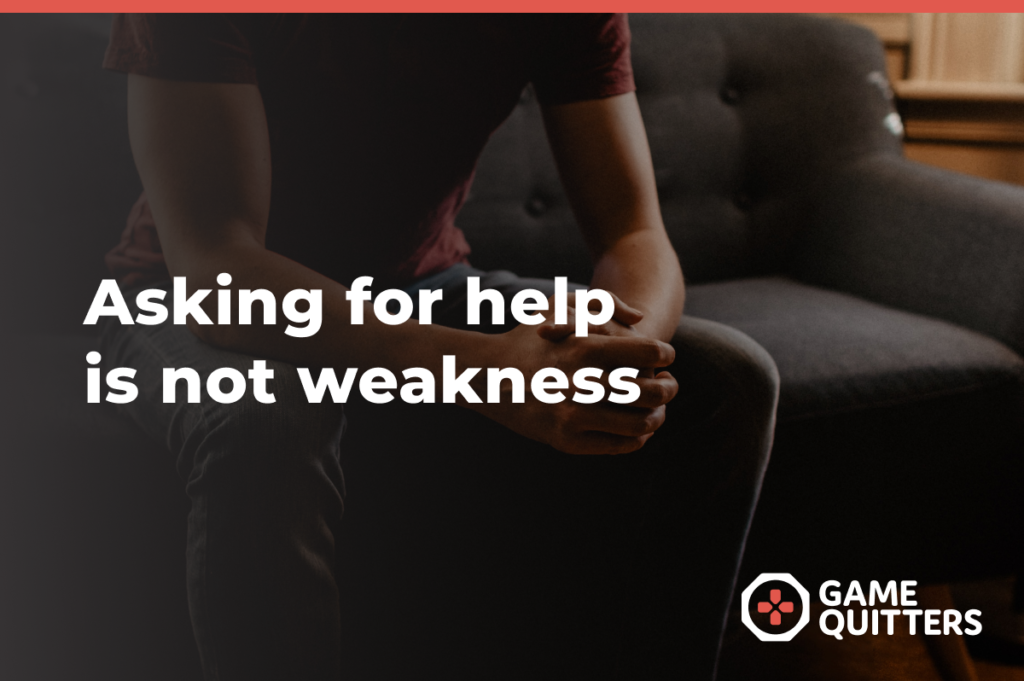
You don’t need to continue leading a lonely existence. There are steps you can take to cure loneliness and live a more fulfilled and sociable life. But constantly playing video games as a means of escape isn’t one of them. In fact it may be making you feel even more lonely.
At Game Quitters, we can help you get your gaming under control on our specialist coaching program.
Get in touch to book a Gameplan strategy call to discuss how we can help you. During this confidential conversation, we’ll see if you’re a good fit for our coaching program. If you’re a concerned loved one, we specialize in helping gamers in denial.
Footnotes
- https://www.americansurveycenter.org/why-mens-social-circles-are-shrinking/ ↩
- https://www.equimundo.org/wp-content/uploads/2023/05/STATE-OF-AMERICAN-MEN-2023.pdf ↩
- https://www.ageuk.org.uk/globalassets/age-uk/documents/reports-and-publications/reports-and-briefings/active-communities/rb_dec17_jocox_commission_finalreport.pdf ↩
- https://www.pewresearch.org/short-reads/2023/02/08/for-valentines-day-5-facts-about-single-americans/ ↩
- https://www.mentalhealth.org.uk/our-work/research/loneliness-and-mental-health-report-uk ↩
- https://time.com/3711902/men-use-dating-apps-more-tinder/ ↩
